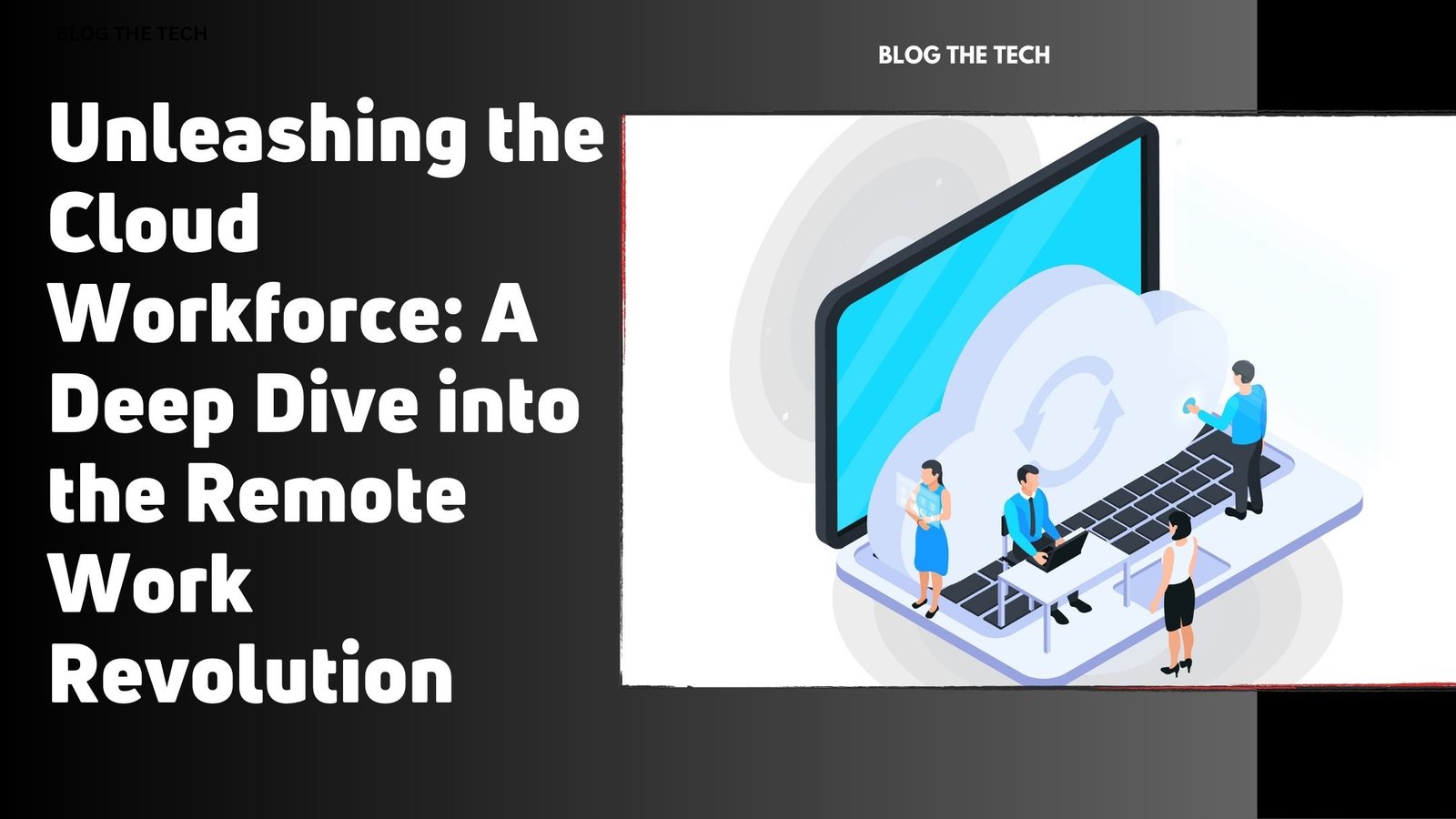The traditional office landscape has undergone a remarkable transformation in recent years as the rapid rise of remote work has taken centre stage. This shift has been fueled by the remarkable advancements in cloud computing, which have paved the way for a new breed of workers known as cloud employees. In this blog, let’s talk about cloud workers, the factors that have driven remote employment, its pros and cons, and its profound effects on businesses and their employees.
Understanding The Surging Popularity of Remote Work
Remote work has gained in popularity in recent years for various reasons. One of the key causes for this development is the improved accessibility and dependability of cloud computing. Thanks to cloud technology, employees may access their work-related files, programs, and data from any location with an internet connection. This liberation from physical restrictions has transformed how we operate, giving rise to a new breed of worker known as the cloud employee.
With the introduction of cloud computing, employees can work seamlessly across devices and collaborate with colleagues regardless of location. Workers can use the cloud to access their work resources, such as documents, software applications, and databases, via secure online platforms. This ease of access has greatly enlarged the possibilities for remote work, allowing individuals to complete their responsibilities swiftly and effectively from any location.
The Advantages of Remote Work for Employees and Employers
The growing remote work trend offers several advantages to both employees and organisations. Employees benefit from the ability to work from any location because it improves work-life balance, eliminates commute time, and increases overall job satisfaction. Individuals who work remotely can create their work environment, whether a home office, a co-working facility, or a local coffee shop. This autonomy generates a sense of autonomy and encourages individuals to be more productive in the best environment.
Individuals who confront geographical limitations or physical disabilities are also empowered by remote work, allowing them to contribute to the workforce on their terms. For example, people living in rural or remote places can now find work without migrating. For example, individuals with impairments or caregiving duties can find more flexible work arrangements through remote employment, allowing them to pursue satisfying jobs while efficiently managing their circumstances.
Employers, on the other side, benefit greatly from accepting remote labour. Companies may hire the top people regardless of geographical location by tapping into a global talent pool. Access to a varied talent pool leads to greater innovation and creativity within enterprises. Remote work can also increase employee productivity, as studies show that remote employees work longer hours and face fewer interruptions. Furthermore, firms can save money on rent, utilities, and other expenses by reducing the need for large office buildings.
What Are The Challenges of Hiring Remote Employees
Hiring remote team members has various benefits, but it also has its obstacles. Recognising and addressing these challenges is crucial for a successful remote working environment. Here are some common challenges when managing remote teams and effective solutions to overcome them.
Ensuring Service Quality
One concern when hiring remote team members is the quality of service they can provide. Hiring managers often worry about selecting inexperienced developers solely based on cost savings.
Solution: Thoroughly researching and testing remote developers’ coding abilities and technical expertise before signing a contract can help mitigate this challenge. Reviewing their previous work portfolio and conducting technical assessments will ensure that they meet your requirements.
Controlling Budget Overruns
Working with inexperienced remote developers can lead to cost overruns, missed deadlines, and other project-related issues. Opting for lower-priced developers without considering their experience and skills may cost more in the long run due to errors and delays.
Solution: Partnering with an experienced offshore software development firm that follows agile practices can help minimise budget overruns. Doing so lets you access top-quality services at reasonable prices while avoiding unnecessary project setbacks.
Tracking and Managing Productivity
Managing and tracking the progress of a remote team dispersed across different locations can be challenging.
Solution: Assigning a dedicated project manager who oversees productivity and strategically manages the work can help manage a remote team effectively. Many professional outsourcing organisations offer project managers to assist clients with these tasks, ensuring the team stays productive and engaged.
Managing Misaligned Expectations
Remote developers may misunderstand your requirements if you fail to communicate your project’s scope and expectations during the hiring and onboarding.
Solution: Establishing regular and clear communication channels when hiring remote engineers can minimise the risk of misaligned expectations. Choosing developers or agencies that actively ask questions and seek clarification is essential to ensure a shared understanding of the project goals.
Dealing with Time Zone Differences
Time zone variations among team members can create communication difficulties in scheduling meetings and addressing issues promptly.
Solution: Embracing asynchronous communication is crucial for effective collaboration across multiple time zones. When sourcing and evaluating remote developers, look for candidates with self-motivation and independence, as these traits contribute to successful asynchronous teamwork.
Establishing Trust and Upholding Company Culture
Building trust between employees and employers is critical in a remote work environment. Managers must establish clear goals and objectives for remote employees and provide regular feedback and help. Creating transparent communication channels, arranging virtual team-building activities, and acknowledging employees’ achievements can all help to develop trust. Promoting a sense of connection and camaraderie among the remote workforce is critical to sustaining a strong company culture.
To boost engagement and enhance relationships among distant employees, companies can host virtual social events such as online team-building games, video conferences, or virtual happy hours. Recognising and celebrating achievements through public recognition or virtual awards makes remote workers feel valued and appreciated. Businesses can develop a sense of belonging and togetherness among their remote workers by prioritising trust-building initiatives and maintaining a strong company culture.
Conclusion
The rise of cloud employees and the increasing popularity of remote work have transformed the traditional office model. Remote work, made possible by cloud computing, provides several benefits to employees and businesses, ranging from enhanced flexibility and productivity to lower costs and wider talent pools. However, effective communication, collaboration, cybersecurity, and preserving organisational culture are critical elements in this changing context.
As remote work evolves, businesses and individuals must adapt to fully capitalise on the benefits and address the challenges this new era of work presents. Cloud employees may contribute to strong enterprises while enjoying the benefits of a flexible and pleasant work-life balance with the correct methods and support.





